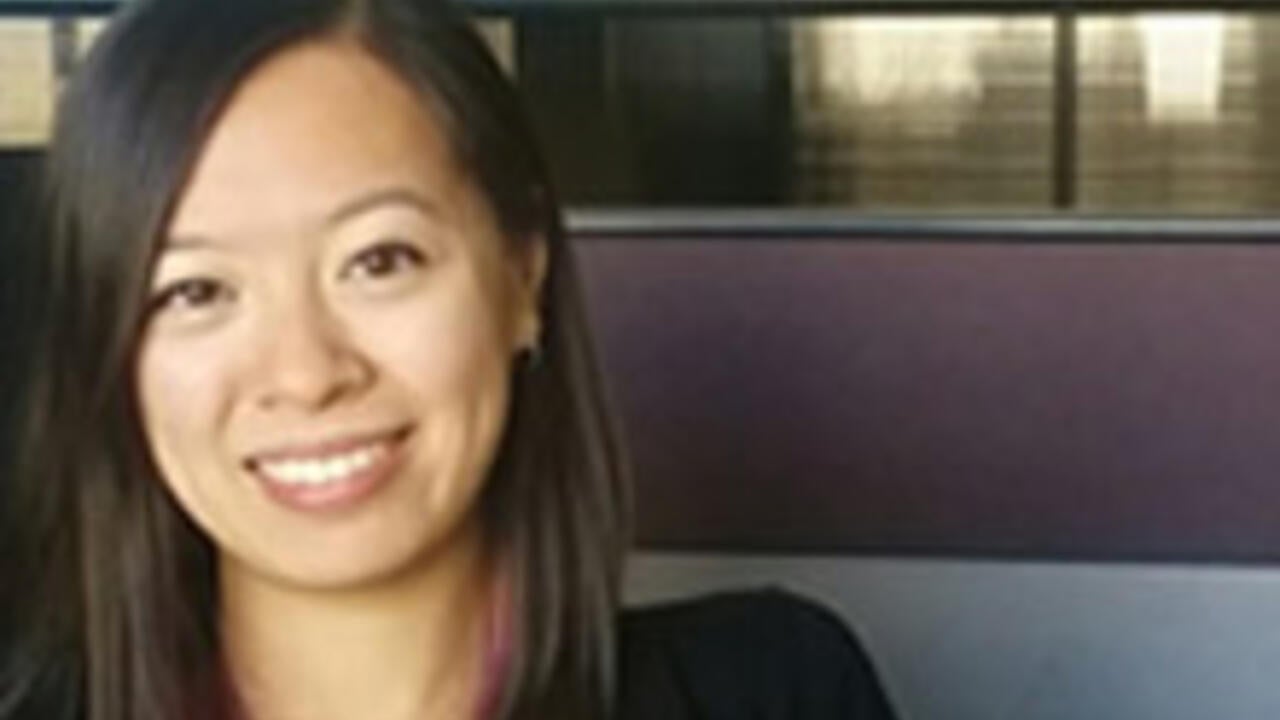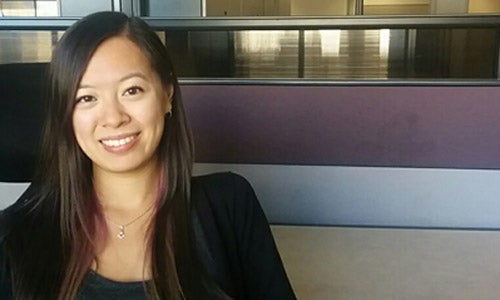
Cancer research became personal for alumni gold medal recipient
Engineering student Audrey Chung will be honoured at fall convocation ceremonies for her research in computer-aided prostate cancer detection

Engineering student Audrey Chung will be honoured at fall convocation ceremonies for her research in computer-aided prostate cancer detection
By Carol Truemner Faculty of Engineering Growing up, Audrey Chung wanted to become a neurosurgeon. It was only at the beginning of Grade 12 that her postsecondary educational focus changed from medicine to engineering.
Growing up, Audrey Chung wanted to become a neurosurgeon. It was only at the beginning of Grade 12 that her postsecondary educational focus changed from medicine to engineering.
“I had the revelation that I’m not great at memorizing things, which is essential in becoming a doctor,” she says. “My strengths lie in understanding and applying concepts so I thought I could do well in the field of engineering.”
Eight years later, Chung is proving she made the right decision to pursue an undergraduate degree in systems design engineering, followed by a master’s. Described by one of her professors as an “outstanding and dedicated scholar”, Chung will be awarded the University’s Alumni Gold Medal at the master’s level during fall convocation this Saturday.
Her research interests include image processing and computer vision, an area she became interested in during an undergraduate exchange term in Singapore.
“I went into medical imaging when I first started my master’s,” says Chung, a member of Waterloo’s Vision and Image Processing Lab. “It seemed like a nice cross-over between computer vision and my childhood interests.”
Focusing on computer-aided prostate cancer detection, Chung invented a unique way to automatically identify suspicious prostate tissue based on statistical radiomics-driven characteristics. She collaborated with researchers at Toronto’s Sunnybrook Health Sciences Centre who now use her clinical decision support technologies.
Alexander Wong, a systems design engineering professor and Chung’s graduate studies supervisor, says the potential impact for her work is substantial.
“Not only would it help improve survival rate and recovery time for older adults, but it would also reduce the need for painful and other unneeded biopsies,” Wong says.
Research hit close to home
Chung’s master’s research became personal along the way when her uncle was diagnosed with prostate cancer. She dedicated her thesis to her uncle who has since undergone treatment and is doing well.
The recipient of a number of competitive awards, including the NSERC Alexander Graham Bell Canada Graduate Scholarship, Chung has produced over 19 peer- reviewed scientific articles and conference papers, many recognized with awards.
She is currently two months into her doctoral studies, also in systems design engineering at Waterloo. One area she’s considering researching for her PhD thesis is discovery radiomics, which uses abstract imaging-based features extracted from the wealth of available medical imaging data to classify cancer rather than just predetermined features
Chung says she originally came to Waterloo because of the Faculty of Engineering’s reputation and renowned co-op program and has stayed for both her graduate degrees because of its supportive and collaborative environment.
When it comes to keeping motivated after seven years in university, Chung chalks it up to a combination of two things: an innate sense of curiosity and a really good supervisor.
“I have to credit a lot of my academic success to Alex (Wong),” she says. “He spends a lot of time asking about what you want to do. It’s easy to stay motivated, when you have a supervisor who believes in you like he does.”

Read more
Here are the people and events behind some of this year’s most compelling Waterloo stories

Read more
Meet five exceptional Waterloo graduate students crossing the convocation stage as Class of 2025 valedictorians

Read more
Irfhana Zakir Hussain works to strengthen Waterloo’s capacity to withstand and recover from climate-related health crises
Read
Engineering stories
Visit
Waterloo Engineering home
Contact
Waterloo Engineering
The University of Waterloo acknowledges that much of our work takes place on the traditional territory of the Neutral, Anishinaabeg, and Haudenosaunee peoples. Our main campus is situated on the Haldimand Tract, the land granted to the Six Nations that includes six miles on each side of the Grand River. Our active work toward reconciliation takes place across our campuses through research, learning, teaching, and community building, and is co-ordinated within the Office of Indigenous Relations.